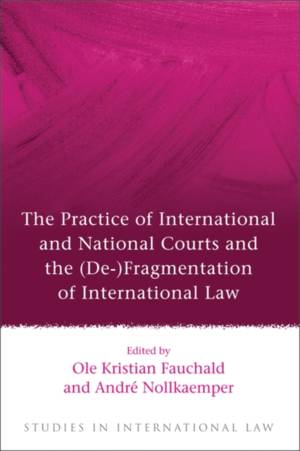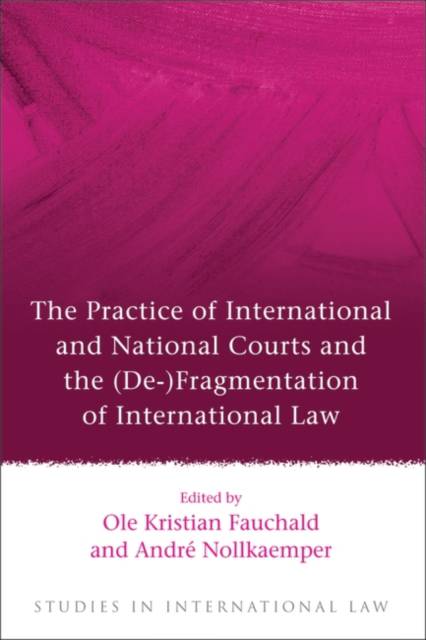
Bedankt voor het vertrouwen het afgelopen jaar! Om jou te bedanken bieden we GRATIS verzending (in België) aan op alles gedurende de hele maand januari.
- Afhalen na 1 uur in een winkel met voorraad
- In januari gratis thuislevering in België
- Ruim aanbod met 7 miljoen producten
Bedankt voor het vertrouwen het afgelopen jaar! Om jou te bedanken bieden we GRATIS verzending (in België) aan op alles gedurende de hele maand januari.
- Afhalen na 1 uur in een winkel met voorraad
- In januari gratis thuislevering in België
- Ruim aanbod met 7 miljoen producten
Zoeken
The Practice of International and National Courts and the (de-)Fragmentation of International Law
Ole Fauchald
€ 145,45
+ 290 punten
Omschrijving
There has been a considerable growth in the activities of international tribunals and the establishment of new tribunals. Supervisory bodies established to control compliance with treaty obligations have have experienced a similar development. National courts further add to the practice of adjudication of claims based on international law. While courts and supervisory bodies strengthen the adjudicatory process in international law, they also pose challenges to the unity of international law. Most of these bodies operate within their own special regime and will primarily interpret and apply international law accordingly. The role of domestic courts focuses on applying and giving effect to internaqtional law within the framework of national law. Both international and national courts have found various ways to counteract the process of fragmentation that may result from their jurisdictional limitations. This book explores how international and national courts can, and do, mitigate fragmentation of international law. It contains case studies from international regimes (including the WTO, the IMF, investment arbitration and the ECtHR) and from various national jurisdictions (including Japan, Norway, Switzerland and the UK).
Specificaties
Betrokkenen
- Auteur(s):
- Uitgeverij:
Inhoud
- Aantal bladzijden:
- 382
- Taal:
- Engels
- Reeks:
- Reeksnummer:
- nr. 40
Eigenschappen
- Productcode (EAN):
- 9781849462471
- Verschijningsdatum:
- 9/03/2012
- Uitvoering:
- Hardcover
- Formaat:
- Genaaid
- Afmetingen:
- 157 mm x 236 mm
- Gewicht:
- 566 g

Alleen bij Standaard Boekhandel
+ 290 punten op je klantenkaart van Standaard Boekhandel
Beoordelingen
We publiceren alleen reviews die voldoen aan de voorwaarden voor reviews. Bekijk onze voorwaarden voor reviews.









